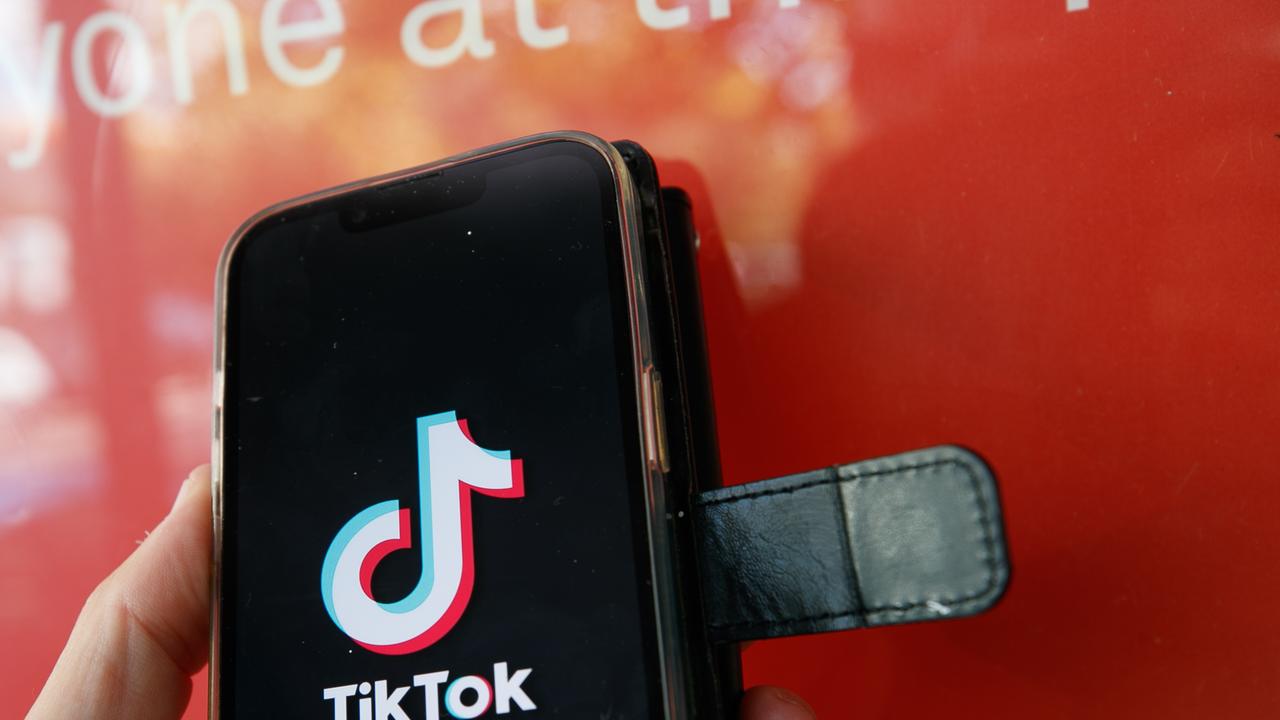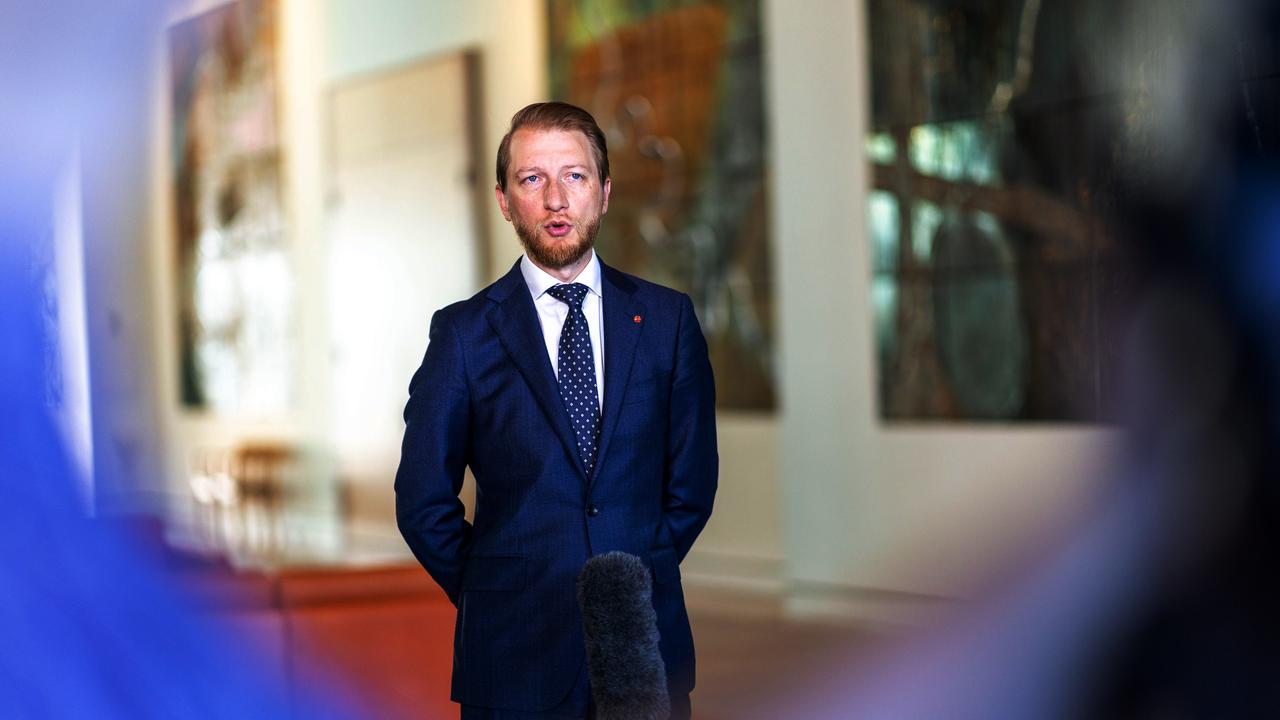Senate inquiry hears push from US, Australian experts on ‘risk’ of TikTok
A major figure behind the US push for a total TikTok ban says Australia should seriously consider doing the same.
The government should consider a total ban of TikTok altogether to address national security concerns posed by the app, a senior US government official has told Australian senators.
Brendan Carr, the US Federal Communications Commissioner, told a federal parliamentary inquiry examining foreign interference of social media apps in Canberra on Thursday that unless TikTok was willing to undergo genuine divestiture, countries like Australia and the US needed to consider total bans.
The federal government banned TikTok on all government devices earlier this month, following the lead of US and other western allies.
The conversation in the US – spearheaded by Mr Carr – has now turned to a total ban, a step he believes “Australia should take as well”.
Mr Carr said TikTok posed a major national security risk that left nations with very little wiggle room.
“Some sort of rifle shot legislation that imposes a ban or a genuine divestiture is the way forward right now with a ban on TikTok for federal devices,” he said.
“The other (option) would be genuine divestiture, elimination of all corporate ties back to China. A genuine effort like that is one I’m open to as well.”
TikTok is owned by parent company ByteDance, which has its headquarters in Beijing. Concerns have long been raised about how the app’ is beholden to Chinese security laws, specifically that data must be shared should the Chinese government request it.
TikTok has denied it is a national security risk or is harvesting data, maintaining that data is stored in Singapore and in the United States.
But Mr Carr, a senior Republican, said there was too deep an “entanglement” between ByteDance and the Chinese Communist Party.
Wonderful to meet with Australian Senator James Paterson in D.C. last week. @SenPaterson has been leading the effort in Australia to address the unacceptable threats posed by TikTok.
— Brendan Carr (@BrendanCarrFCC) April 4, 2023
Glad to see his important work paying dividends down under. pic.twitter.com/oxH9ZzLRBS
Australian Strategic Policy Institute senior analyst Fergus Ryan said the seven million Australian users of TikTok were running the gauntlet every time they opened the app.
He said there were three main national security risks – the obtaining of their data, content manipulation, but most of all that the CCP has “decisive leverage over TikTok”.
He said the app was no longer using blatant censorship as broadly as it was in the beginning, but noted the algorithm had moved to more opaque methods to promote certain political views and demote others.
As such he called on the government to introduce “bespoke legislation” to deal with TikTok and any emerging apps out of authoritarian countries.

“There needs to be a complete overhaul of regulation around data, but this will still not address the risk that the CCP could use its leverage of overwhelming influence over TikTok and Byte Dance to manipulate discourse in a way that is hard to detect,” he said.
He said if TikTok could alter its algorithm for commercial reasons, they “can do it for geo-political reasona as well”.
“It’s not a great leap of the imagination to see the potential for that to be happening when it comes to political speech as well,” he said.
ASPI has called for the government to nominate a specific department to lead on the issue, noting that currently issues of foreign intelligence are split between multiple departments.

Committee chair James Paterson – who was been vocal in his calls for restricting the availability of TikTok in Australia – said in his opening statement that while social media had the capacity to do good, apps coming out of authoritarian regimes posed enormous risks.
“In this dangerous and uncertain strategic environment, we cannot allow foreign authoritarian regimes to have unfettered access to the devices of millions of Australians and the powerful opportunity that offers them to influence our democracy,” he said.
“The work starts today to make us a harder target against the threat of cyber-enabled foreign interference.”
The inquiry will continue over coming months, and will hear from TikTok as part of the process, before handing down its findings in August.



